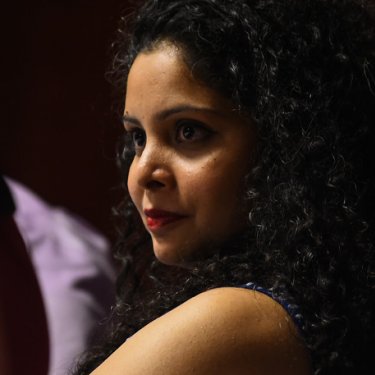RSF urges Indian authorities to protect woman journalist

Reporters Without Borders (RSF) condemns an unprecedented week-old hate campaign on social networks against Indian freelance journalist Rana Ayyub and calls on the government and the New Delhi police to do whatever is necessary to protect her.
Rana Ayyub has been exposed to a living hell ever since 20 April, when a tweet purporting to have been posted by a TV channel falsely quoted her as having defended the perpetrators of the gang-rape of a child and as having accused the Hindu nationalist government of using the case to persecute Muslims.
A torrent of sexist insults ensued. Porn videos have been posted online with her head digitally imposed over the heads of the actresses. There have even been calls for her to be gang-raped and murdered.
“I couldn’t sleep for three nights, I couldn’t talk,” she told RSF. “The trolls posted my phone number, the address of my house online. If this is the depth of their hatred, what will stop them from coming into my house as a mob and kill me?”
Ayyub has filed a complaint with the police in New Delhi, which she was visiting when she began receiving the threatening messages. A Facebook post left little doubt about the source of the campaign. Referring to Prime Minister Narendra Modi, it said: “Look, Rana Ayyub, what they’ve spread about you. Don’t ever dare to speak about Hindus and Modi again.”
“The authorities must take proper measures at once to guarantee Rana Ayyub’s physical safety,” said Daniel Bastard, the head of RSF’s Asia-Pacific desk. “This hate campaign alarmingly recalls the one that preceded fellow journalist Gauri Lankesh’s murder last September, probably by members of the Hindu nationalist right. The government and ruling party, which are known to use troll armies, are responsible for her security. The New Delhi police must do everything possible to end this harassment.”
Ayyub, who was nominated last October for the RSF Press Freedom Prize, is famous for a book she wrote describing how Modi exploited the anti-Muslim riots in the state of Gujarat in 2002, which marked the start of his rise to the position of prime minister.
Ever since Modi’s party won the 2014 general elections, Indian journalists have often reported being harassed when they criticize him or his government, and this harassment has resulted in a significant increase in self-censorship.
India has fallen two places in the latest World Press Freedom Index that RSF has just published, and is now ranked 138th out of 180 countries.



